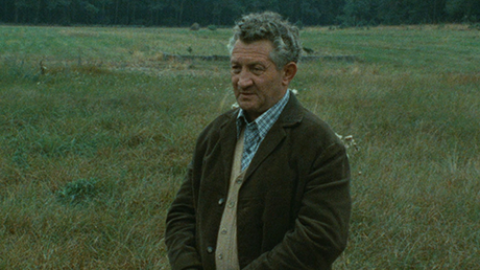The Film Comment Podcast: Representing History + Isabelle Huppert Interview
Though we’re taught to compartmentalize historical movements into discrete events and dates, the truth (or what we know of it) is anything but. Four recent films— Apichatpong Weerasethakul’s Cemetery of Splendor, Jia Zhang-ke’s Mountains May Depart, Amos Gitai’s Rabin, the Last Day, and László Nemes’s Son of Saul—take very different but ambitious aesthetic approaches to historical trauma. FILM COMMENT Digital Editor Violet Lucca was joined by FILM COMMENT’s Nicolas Rapold, The Nation critic Stuart Klawans, and New York Times and FILM COMMENT contributor J. Hoberman to discuss these films’ varying approaches, strengths, and blind spots.
We also have a special interview with French icon Isabelle Huppert, who spoke with Yonca Talu about Guillaume Nicloux’s Valley of Love and working with Maurice Pialat and Claude Chabrol (with a few words about her next collaborator, Michael Haneke).












